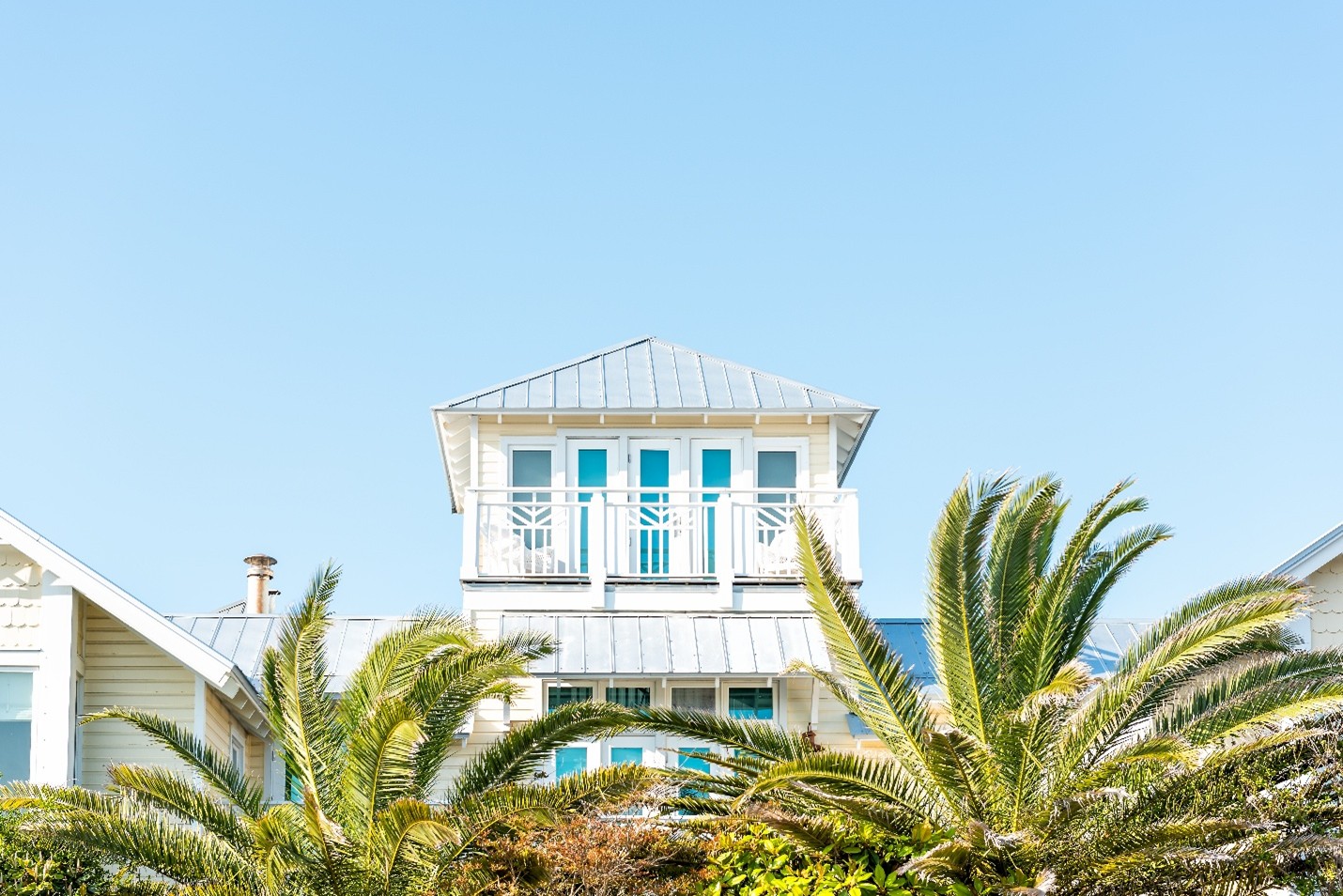Estimated reading time: 6 minutes
If you vacation in the same location every year or you’re looking for a break from your normal routine and unpleasant weather, you may consider purchasing a second home. Before you begin searching for properties, it’s important to understand the differences between financing your primary residence and your second home.
A second home is a single-unit property that you own in addition to your primary residence. Property restrictions vary, but you may be able to finance a single-family home, condominium, or manufactured housing. According to data from the National Association of Home Builders, as of September 2024, 6.5 million homes in the United States served as second homes.
To qualify for home financing, your second home may not be used as an investment or rental property, including any long-term leasing or timeshare arrangements.
There are numerous reasons a person may choose to own a second home. Maybe you want milder weather during Winter or there’s a region you always visit with your loved ones.
Your mortgage interest and property taxes may be tax deductible if you don’t plan to rent out your second home. The second home cannot be rented out for more than two weeks during the year to be eligible. Seek out the advice of a qualified tax professional for more information to be sure your property qualifies.
Sometimes, it’s not possible to live as close as you’d like to your family and friends. With a second home, you may be able to take more frequent and less expensive trips to see those you love. You won’t have to worry about hotel accommodations or enough space for guests. You’ll be able to create more memories and connect with multiple community.
When you’re ready to retire, you’ll already have a place to retreat without needing to worry about buying and selling a home at the same time. If you decide to sell your primary home, you could use the profits for your mortgage payments or renovations of your second home.

The process of purchasing a second home is very similar to obtaining a mortgage for your primary home, with a few important distinctions.
Similar to obtaining your first mortgage, determining your budget is an important first step. If you have a mortgage on your primary home, can your finances handle monthly mortgage payments for two properties? In addition to the home’s listing price, be sure to budget for your down payment, closing costs, and other ongoing expenses, such as maintenance.
Obtaining a pre-approval will not only show how much money you may borrow, but it will also show your seller that you have the money necessary for your monthly payments. This is especially important when you purchase a second home because the additional mortgage costs can make a borrower riskier for their lender than a primary mortgage.
Sometimes, second home loans have property restrictions. In some instances, the home must be a particular property type or in a specific location. In addition to ensuring the home meets all loan restrictions, be sure the home is close to the amenities you care about, such as grocery stores or entertainment.
When it’s time to put in your offer, work closely with both your Real Estate Agent and Loan Originator. Some second home loans also have restrictions on closing costs and earnest money. With open communication with your homebuying team, you can be confident you’re meeting all second home loan requirements. You’re less likely to hit snags or delays in the process if the details are ironed out first, especially if you utilize a pre-approval letter.
To qualify for a second home mortgage, borrowers may find that the requirements are stricter than when they financed their primary residence. Lenders want to be sure that you’ll be able to make payments for both of your properties. There is always a chance a borrower could default, meaning the person stops making their monthly mortgage payments. However, the risk of a borrower defaulting increases with a second home loan because they are doubling their financial responsibility.
Your mortgage lender must ensure your finances are stable enough for an additional monthly payment. Ideally, a borrower will need a high credit score and a low debt-to-income ratio. Your debt-to-income ratio, also known as DTI, is a ratio used by lenders to examine how much money you owe compared to how much money you earn.
Down payment amounts for second homes typically range between 10% and 30%. Much like a traditional mortgage, the required percentage will vary depending on what loan program you choose and how much the home is worth. In the fourth quarter of 2024, Realtor.com reported 28% was the average second home down payment.
Cash reserves are funds you set aside to cover certain costs in case of an emergency or income disruption. Financial experts typically measure cash reserves by months. One month of reserves represents the amount necessary to make your monthly payment.
In addition to your mortgage costs, your finances must be stable enough to handle:

At Homestead Funding, we offer competitive financing for second homes. A borrower may choose an adjustable or fixed rate. Additionally, our jumbo program may be utilized for up to $3,000,000 for some borrowers. However, not all second home loan programs are available in all states. It’s best to work with a Licensed Loan Originator for details about what would work best for your situation. To learn more about your home financing options, contact us today!
Homestead Funding offers exceptional customer service and a convenient mortgage process. Whatever your financing needs, our goal is to exceed your expectations.
“This website uses cookies to ensure the best user experience. By using our website you consent to all cookies in accordance with our Cookie policy.
Read More
